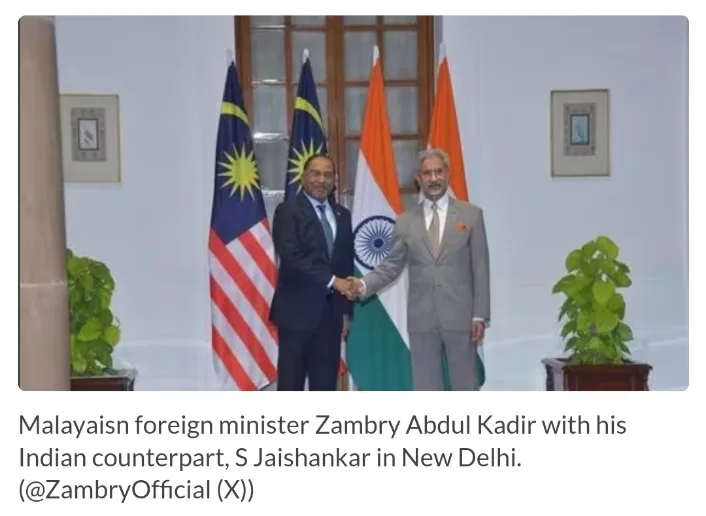In a resolute bid to fortify economic ties, the Malaysian government, led by Foreign Minister Zambry Abdul Kadir, has unveiled ambitious plans to embrace India’s Unified Payments Interface (UPI) and the RuPay payment service. These measures are aimed at bolstering bilateral commerce, alongside an exploration of trade settlements in domestic currencies.
Kadir’s announcement followed a significant bilateral Joint Commission Meeting (JCM) with his Indian counterpart, S. Jaishankar, which marked a revival of discussions after a 12-year hiatus. This pivotal meeting ushered in an era of cooperation in novel sectors, encompassing semiconductors, electronic and electric products, fintech, green technology, and startups.
Furthermore, the Malaysian foreign minister expressed his gratitude to India for its recent provision of 170,000 tonnes of non-basmati white rice, which alleviated a pressing shortage in Malaysia.
The Malaysian central bank, Bank Negara Malaysia, is actively pursuing the acceptance of India’s UPI, a commendable stride towards seamless financial integration. According to Kadir, the technical aspects and software-related intricacies pose no insurmountable hurdles for the embrace of India’s RuPay payment service.
Trade settlement in domestic currencies is envisaged as a pathway to augment commerce between the two nations, a model Malaysia has already established with Thailand and Indonesia. This proposition has found favor with Indian counterparts, highlighting the potential benefits of utilizing local currencies for trade settlement, while simultaneously fortifying the stability of both currencies.
Kadir was prudent in acknowledging the scrutiny of these measures as a form of de-dollarization. Nevertheless, Malaysia is intent on exploring the mutual advantages achievable through currency diversification, thereby averting excessive currency fluctuations and ensuring the stability of their respective currencies.
Regarding defense and security cooperation, the Malaysian foreign minister did not specify particular Indian defense platforms but affirmed a commitment to augment cooperation in the defense industry, training, and joint military exercises. The opening of an office in Malaysia by India’s state-run Hindustan Aeronautics Limited and Defense Minister Rajnath Singh’s visit in July signal the onset of a promising phase of collaboration.
Kadir emphasized that comprehensive cooperation within the defense industry necessitates a detailed analysis of technical capabilities, involving multiple stakeholders, thereby extending the timeline for such agreements. He underscored that this approach should not be interpreted as a rejection of Indian defense systems or equipment.
While maintaining a guarded stance on the issue of the extradition of Islamic preacher Zakir Naik, residing in Malaysia since 2016, Kadir emphasized the necessity to scrutinize security cooperation holistically, encompassing the entire system rather than focusing on individual personalities.
In a comprehensive approach, the two nations are determined to enhance relations across various fronts, including prisoner transfers and combating human trafficking. Acknowledging existing gaps, Kadir stressed the importance of rectifying systemic shortcomings, emphasizing the broader aspects of their cooperation.
In summary, Malaysia’s proactive stance towards embracing India’s financial services, coupled with a commitment to forge stronger ties in defense and trade, underscores their shared vision for a flourishing partnership, extending beyond a singular aspect of their bilateral relationship.






